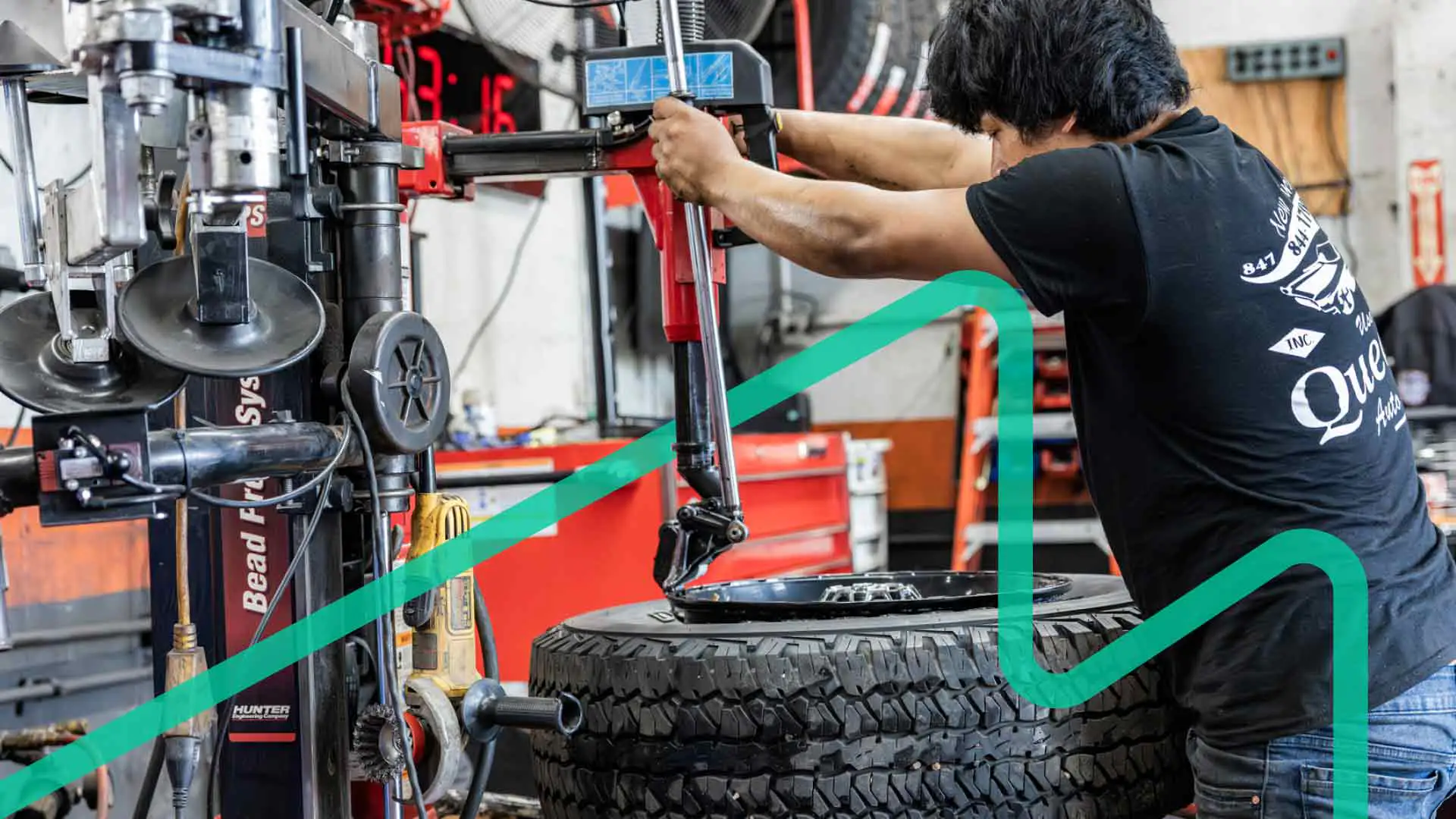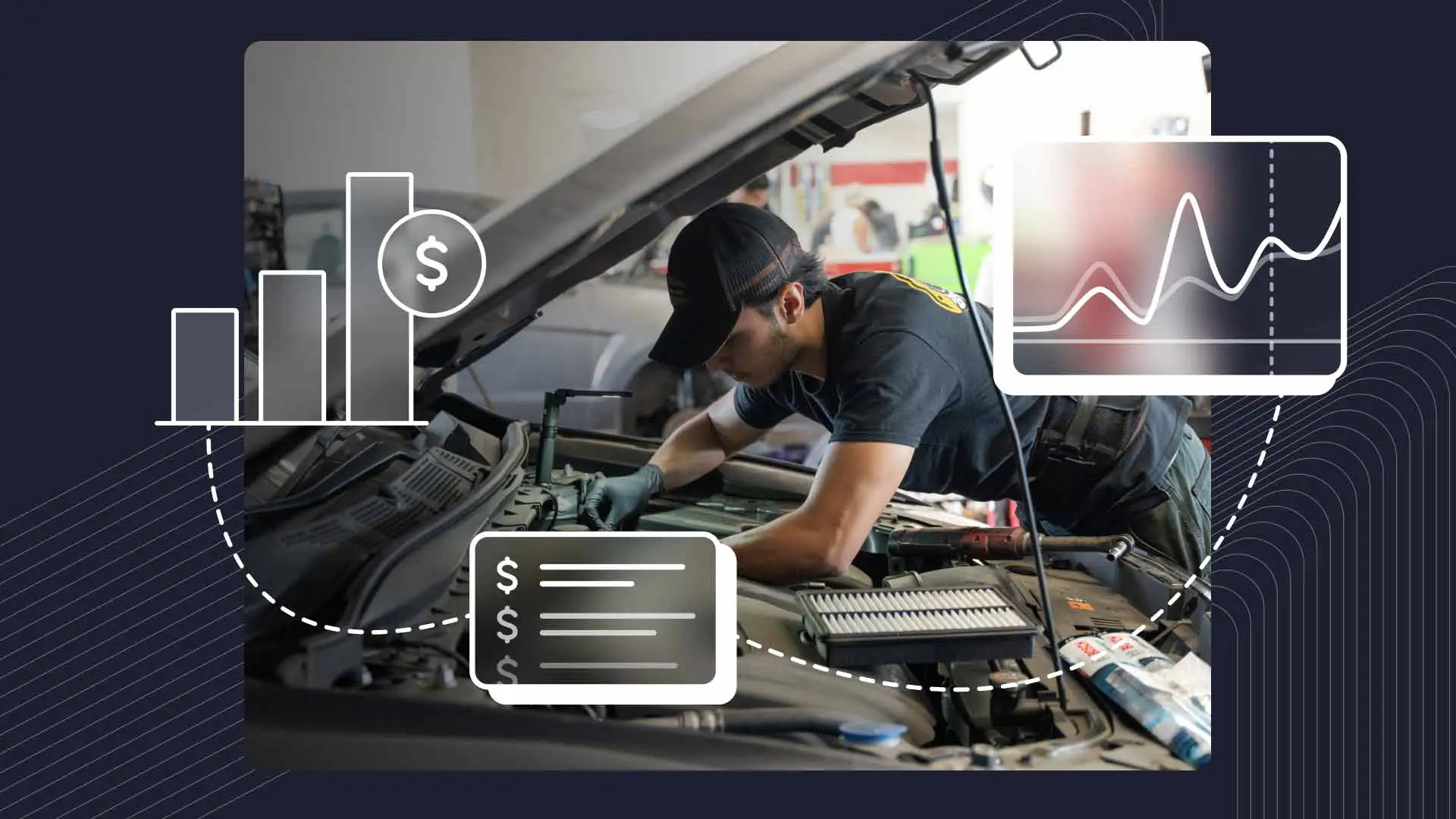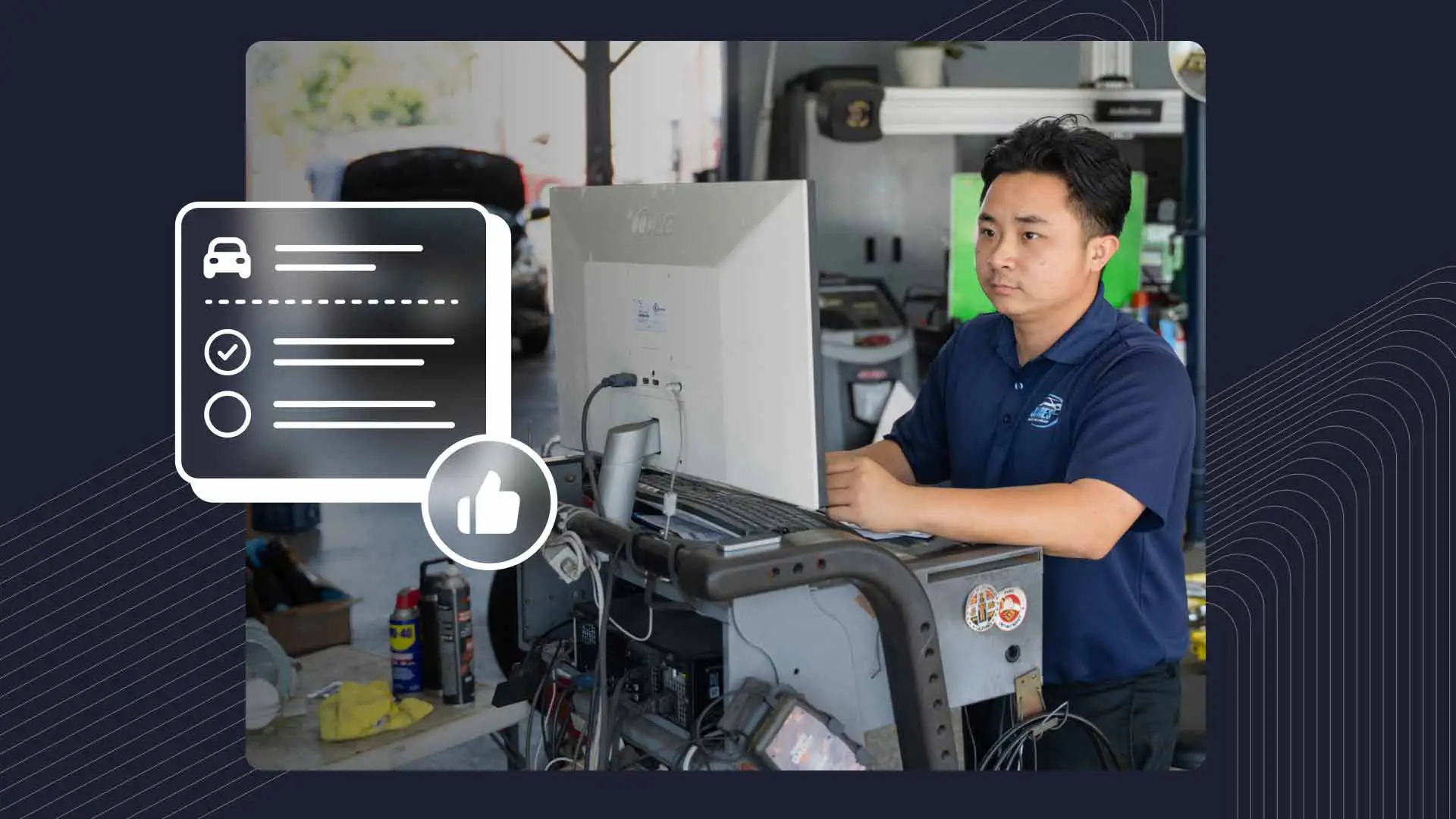Having the right tools can make all the difference. And for auto shops looking to maximize their efficiency, profits, and customer satisfaction, one piece of equipment that may very well check those boxes is a tire changer.
After all, today’s machines are purpose-built for speed and precision, significantly reducing both the time and manpower required for manual tire changes. Many units also feature advanced capabilities like automatic bead loosening, mounting and demounting systems, and electronic balancing for unparalleled accuracy and repeatability. But these tools aren’t cheap, either, and mastering them takes skill and training. They also require dedicated floor space within a shop’s existing layout.
With that in mind, let’s take a look at whether a new tire changer is a sound investment for your auto repair business by weighing the potential costs against the rewards, along with key factors like your shop’s current and projected volume of tire work, and the types of tires you service.
The Benefits of Tire Changing Machines
Tire changing machines offer several advantages that can make them a valuable addition to your auto shop. Here are some of the key benefits:
Increased Efficiency: Arguably the most notable advantage of a tire changing machine is the time it can save your technicians. These machines make quick work of even the most challenging jobs by automating much of the process, allowing your team to get more done in less time while keeping your customers happy and your workflow moving.
Reduced Labor: Changing tires manually can be a backbreaker. Tire changers take the grunt work out of the equation, saving your technicians from the strain of prying and lifting while potentially cutting down on fatigue and limiting the risk of injury.
Rim Protection: Traditional tire irons can be brutal on alloy rims. Tire changers help finesse tires on and off, minimizing the risk of costly scratches and dings, as well as more serious structural damage that could compromise the wheel’s integrity.
The Downsides of Tire Changers
While tire changers offer a number of compelling advantages, there are some potential downsides to consider:
Cost: High-end tire changers can be a significant investment. Depending on the model and features, their price tag can range from around $1,500 to $15,000 or more. For smaller shops or those on a tight budget, this upfront cost might be prohibitive.
Learning Curve: To get the most out of a tire changing machine, your technicians will need to be properly trained on its use, e.g., how to handle different tire sizes, how to work the controls, and making sure each tire fits securely to the wheel. This could require an additional investment in training, as well as time for techs to get comfortable with the new equipment.
Space Constraints: Tire changing machines aren’t compact. In fact, they’re typically bulky pieces of equipment that require a significant amount of space in your shop. If you’re already short on room, finding a suitable spot for your tire changer can be a challenge; you may even have to reorganize your shop’s layout to accommodate this new addition.
Is a Tire Changer Right for Your Shop?
Whether or not a tire changing machine is a good investment for your auto shop depends on several factors. Here are a few things to consider:
Shop Volume: If your shop handles a high volume of tire changes, a machine could likely pay for itself in terms of time saved and added efficiency. On the other hand, if you only do the occasional tire change, a machine might not be worth the investment. Tip: Don’t just think about your current daily, weekly, or monthly number of mounts and dismounts–consider the anticipated volume of tire changes in your shop as well.
Service Mix: Take into account the size and type of tires your shop services. If you or your technicians work on a good percentage of specialty tires, like performance or low-profiles, or even run-flats, a tire changer can make those jobs significantly easier while allowing your team to take on more jobs.
Budget Reality: Be realistic about your financial situation. While there are more affordable tire changer options, you should plan for a long-term return on investment. Beyond the initial purchase, you’ll also need the budget for ongoing maintenance to keep the machine running smoothly. This can include anything from checking for loose screws, to making sure all moving parts are working well, to inspecting air hoses for possible leaks or blockages. Tip: It may be worthwhile to look into financing options, or consider leasing the equipment to lessen the initial hit to your wallet.
For auto shops looking to maximize their efficiency, profits, and customer satisfaction, one piece of equipment that may very well check those boxes is a tire changer.
Where the Rubber Meets the Road
Under the right circumstances, a tire changing machine can be the goose that lays golden eggs for your auto repair shop. If you’re looking to streamline your tire services, ease the physical burden on your techs, and protect your customers’ valuable rims, this tool could represent the ideal solution.
But along with the benefits of modern tire changing equipment come potential drawbacks, especially for shops that may only do the occasional tire change. The upfront costs, training and maintenance requirements, and space needed to accommodate these machines might make them less than feasible.
Ultimately, the decision on whether to take the plunge will come down to some key considerations, including your current and expected volume of tire work, the different types of tires your team frequently encounters, and if you have the budget and/or floor capacity for a substantial piece of new equipment. As with any major purchase, carefully weighing the pros and cons, as well as your shop’s specific needs and situation, will help you make the best choice for your business.
If you’re ready to streamline your tire business in other ways, consider Shopmonkey's best-in-class tire shop software. With easy-to-manage scheduling, real-time inventory tracking, and enhanced customer communication tools, Shopmonkey can help you run a more efficient, profitable tire shop.




